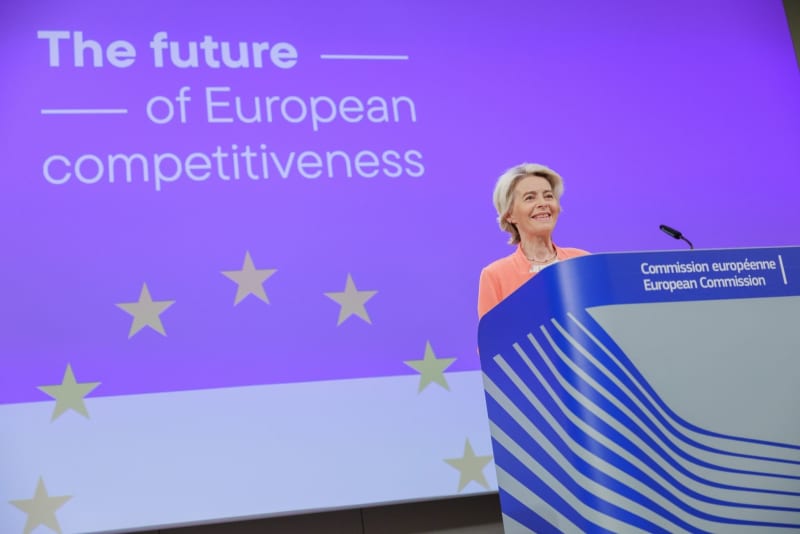European Commission President Ursula von der Leyen will announce her new leadership team to the European Parliament on Tuesday, after Frenchman Thierry Breton angrily and abruptly resigned.
The former EU internal market commissioner said von der Leyen had asked Paris in a resignation letter to X to nominate another person in exchange for “a reportedly more influential portfolio for France” in the EU executive.
Breton, the current French commissioner, said this “political assessment” was made “for personal reasons that von der Leyen under no circumstances discussed directly with him”.
The former French candidate, who openly criticised von der Leyen’s leadership during the recent European Parliament elections, called this “further evidence of questionable governance” within the commission.
The German conservative politician has often been criticised by opponents for her centralised approach to governing the European Union’s executive branch.
A spokeswoman for the commission declined to comment on the public content of Breton’s letter and the attack on von der Leyen’s leadership.
Breton’s surprise resignation has fuelled speculation as von der Leyen clashes with EU countries over policy portfolios, trying to balance geographic and political factors.
The process had already been delayed due to a domestic political dispute in Slovenia over the nomination of a candidate for the commission.
There is also the issue of where to appoint Italian candidate Raffaele Fitto, from Prime Minister Giorgia Meloni’s far-right Brothers of Italy party, to the commission.
Meloni did not support von der Leyen for a second term in the commission, but von der Leyen must take into account the risk that Italy, like Hungary, will drift further to the right and turn against the EU.
The issue is further complicated by von der Leyen’s request for EU member states to nominate a man and a woman for the Commission positions, in a bid to achieve gender parity among its 26 commissioners.
The Commission President made an exception to this request for EU countries that wanted to nominate their sitting European Commissioner, such as Breton, for a new term.
However, most EU member states ignored von der Leyen’s request and nominated only one candidate for the commission, the majority of whom were men.
There is no legal obligation in the EU treaties to nominate a male and a female candidate.
After Breton’s surprise resignation, the Élysée Palace announced the nomination of Stéphane Séjourné, the outgoing French foreign minister. Paris did not nominate a woman to replace Breton.

